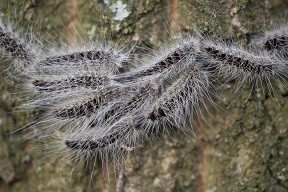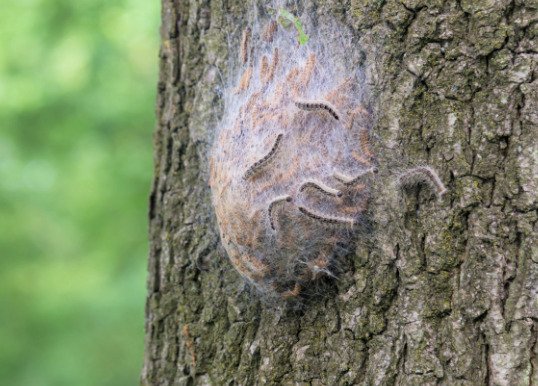Nests of damaging oak processionary moths have been discovered in two local nature reserves. People have reported sightings in Berrylands Nature Reserve and Stokes Field nature reserve in Long Ditton. After a nest was spotted on a tree in the Berrylands reserve, further nests were found. Kingston Council will be conducting additional surveys of the
Nests of damaging oak processionary moths have been discovered in two local nature reserves.
People have reported sightings in Berrylands Nature Reserve and Stokes Field nature reserve in Long Ditton.
After a nest was spotted on a tree in the Berrylands reserve, further nests were found.
Kingston Council will be conducting additional surveys of the trees on the five hectare site and either spraying or removing the nests.
The moth caterpillars are damaging pests, feeding on oak leaves and making the trees vulnerable to other critters, drought and disease.
Their toxic hairs also cause skin rash, eye irritation and in some cases breathing difficulties for humans and pets.
At this time of year, the caterpillars can be spotted moving about on tree trunks in nose to tail processions – hence their name. Lines of caterpillars are often arrow headed.
“If you spot any processions or clusters of caterpillars, silken webbing trails, or nests on the trunks or branches of our local oak trees then please drop us an email to
berrylandsnr@gmail.com, and we can continue to work with the council to get them safely treated,” said Andrew Irving of the Friends of Berrylands Nature Reserve.
The caterpillars have also been found in Stokes Field, a six hectare reserve near Surbiton Hockey Club, popular with strollers and dog walkers. It is known for its woodland, ponds, remnants of meadows, and magnificent oak trees.
Dr Deborah Turbitt of Public Health England, said: “We strongly advise people not to touch or approach the caterpillars or their nests because of the health risks posed by the hairs.
“They should see a pharmacist for relief from milder skin or eye irritations following possible OPM contact, or consult a GP or NHS 111 for more-serious reactions. Contact a vet if animals are seriously affected.”
Any sightings should be reported to the Forestry Commission. Email opm@forestrycommission.gov.uk or call 0300 067 4442.
And, if you know the moth is on Elmbridge Borough Council land, phone 01372 474825 or email opm@elmbridge.gov.uk.
The commission and Elmbridge council have an annual programme in place to tackle the pest, which is a growing issue at this time of year.











Leave a Comment
Your email address will not be published. Required fields are marked with *